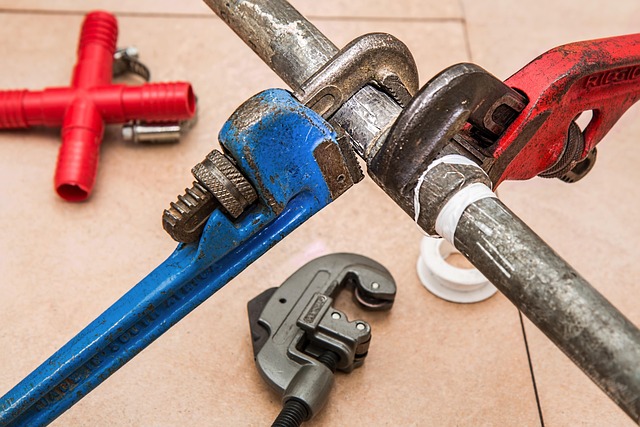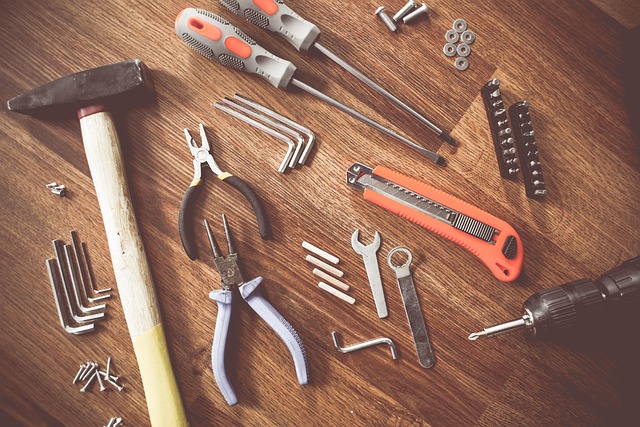Setting clear goals, establishing a realistic budget based on average Home Repair and Maintenance costs, and defining project scope are vital steps for successful home renovations. Prioritizing tasks from urgent repairs to long-term desires, while considering family needs and accessibility, ensures informed decisions, accurate budgeting, and effective management throughout the renovation process.
Planning and managing home renovations can be a daunting task, but with careful strategy, it becomes a rewarding journey. This comprehensive guide breaks down the process into manageable sections. From setting clear goals and budgets to selecting reliable contractors and managing timelines, we provide insights for both DIY enthusiasts and those seeking professional help. Additionally, discover the secrets to regular maintenance, ensuring your renovations stand the test of time. Master these steps, and you’ll be well on your way to a successful home repair and maintenance journey.
- Setting Clear Goals and Budget for Home Repair
- – Understanding the scope of the project
- – Determining priorities: What needs immediate attention?
Setting Clear Goals and Budget for Home Repair

Setting clear goals is a crucial step in any home renovation project, as it provides a sense of direction and focus for your efforts. Begin by identifying specific areas that require repair or upgrades, whether it’s remodeling the kitchen, renovating the bathroom, or tackling essential maintenance tasks like roof repairs or foundation work. Define achievable objectives for each area, such as installing new appliances, updating outdated fixtures, or improving energy efficiency.
Just as important as setting goals is establishing a realistic budget tailored to your project needs and financial capabilities. Researching average costs for specific home repair and maintenance tasks will give you a baseline for planning. Consider factors like material expenses, labor rates, and potential unforeseen issues that may arise. Creating a detailed breakdown of estimated costs will help ensure your project stays on track financially, enabling you to make informed decisions and effectively manage the renovation process.
– Understanding the scope of the project

Planning any home renovation project starts with a clear understanding of the scope – what needs to be done, how much it will cost, and how long it will take. This involves meticulously assessing every aspect of your space, from structural integrity and wiring to aesthetics and functionality. It’s crucial to consider both the immediate goals (like repairing a leaky roof or updating outdated fixtures) and long-term desires (such as adding an extra bedroom or transforming a bathroom into a spa-like oasis).
A well-defined scope is the bedrock of successful home renovation management. It enables you to create a detailed budget, set realistic timelines, and effectively communicate your vision to contractors. Whether it’s tackling minor repairs and maintenance tasks or overseeing a complete gut renovation, having a clear understanding of project boundaries from the outset ensures that your remodel stays on track, within budget, and meets your expectations.
– Determining priorities: What needs immediate attention?

When embarking on a home renovation project, one of the key steps is prioritizing tasks based on their urgency and importance. This involves assessing every nook and cranny of your home to identify areas that require immediate attention from simple home repair and maintenance to more complex renovations. Prioritizing effectively ensures that you’re allocating resources efficiently, whether it’s time, money, or professional help.
Focus on tasks that could have long-term implications if left unattended. For instance, a leaky roof might be higher on the priority list than repainting a bedroom. Regular home maintenance checklists can help in this process, ensuring that nothing slips through the cracks. Prioritizing also means considering your family’s needs and lifestyle changes, such as creating more space for growing children or adapting to accessibility requirements.
Effective home renovation planning is key to a successful and stress-free repair process. By setting clear goals, defining your budget, and prioritizing tasks based on their urgency, you can transform your living space efficiently. Remember, proper management ensures that your home repair and maintenance projects stay on track, within your financial limits, and aligned with your desired outcomes.






